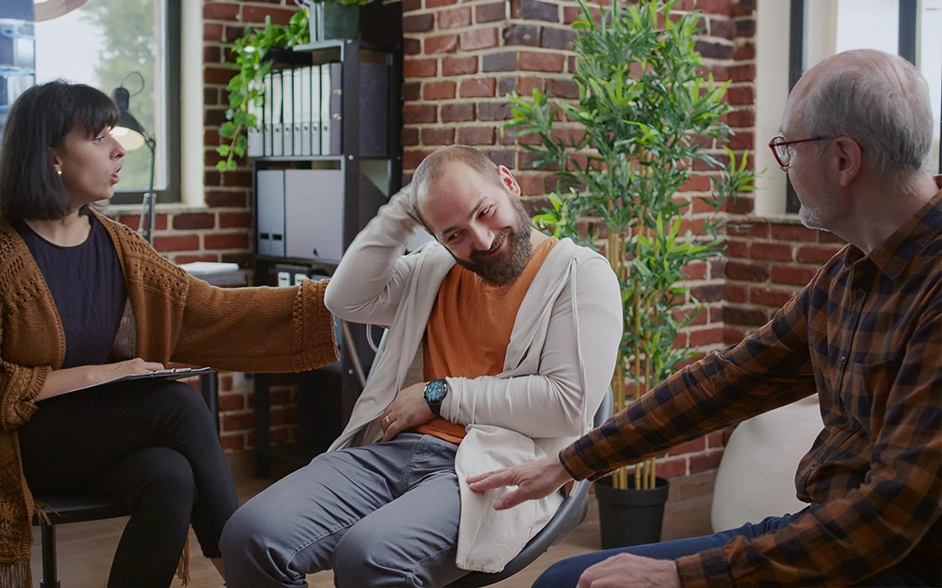- Mumbai, New Delhi, Bangalore
- (+91) 81518 30000
- WhatsApp Now
- contact@vedawellnessworld.com
A client came to seek help at our Delhi center due to ongoing anxiety, trouble coping with stress, and issues with concentration and procrastination. In addition, the client voiced worries about adjustment problems to a new country and addiction to the internet as well as phone.
A structured plan was formulated to help the client improve focus, well-being, and emotional stability.
Patient Profile: A 25-year-old young adult adjusting to a new country
Emotional symptoms reported were extreme sadness, anger, loneliness, anxiety, and low mood. Low self-compassion and high expectations from oneself were also noted.
Behavioral symptoms experienced were eating under stress, and reckless actions, like riding a bike carelessly. Restlessness and putting away important things related to coursework and exams were present.
The physiological symptoms included frequent headaches and feeling exhausted.
The treatment approach was integrative, multidisciplinary, and holistic. An Eclectic approach to psychotherapy was utilized integrating Dialectical Behavioral therapy (DBT), Rational Emotive behavioral therapy (REBT), Cognitive behavioral therapy (CBT), and motivational therapy.
The holistic and alternative therapies included Mindfulness-based therapy, sports and physical training, yoga, meditation, sound therapy, and nutritional counseling and management.
The client-specific challenges included initial resistance to reduce the usage of phone. Emotionally they felt frustrated and doubted their ability to follow through with the treatment activities.
The clinical hurdles included management of the co-occurring issues such as ongoing anxiety and adjustment issues. Commitment to alternative therapies and lifestyle changes was again a challenge. The separation of parents and their physical and emotional unavailability severely impacted the client throughout all stages of life.
Our team gradually supported the client by helping to reduce dependency on screens. Personalized strategies were formulated to sustain study habits, schedule, and productivity.
In terms of Quantitative outcomes, there was an overall improvement in managing daily schedule and productivity. Structured limitations on the usage of phone was successful.
Whereas, with respect to Qualitative outcome, there was improved emotional regulation and enhanced coping strategies to deal with anxiety as well as triggers. Concentration and focus improved with better and increased energy levels.
The client made progress in many aspects including grief/trauma processing, emotional regulation, distress tolerance, dealing with anxiety, maintaining routine, following through with academic goals, decision-making skills, mindfulness, meditation & yoga as well as cognitive restructuring.
Client’s perspective: “I can deal with my emotions better and equipped with the necessary tools to manage my anxiety and stay disciplined.”
A combination of psychotherapeutic modalities along with alternative healing practices helped the client enhance their mental well-being and overcome past trauma along with current difficulties like cultural shock and loneliness due to adjustment to a new country. Although adapting to a new environment can be tough, with the right kind of support, intervention, and therapeutic space, one can drastically improve mental health and be better equipped to deal with challenges.
Medical Disclaimer: This case study is provided for informational purposes only. It should not be construed as medical advice, nor is it intended to replace the guidance of qualified healthcare professionals. Always seek the advice of a licensed medical provider with any questions you may have regarding a medical condition.
